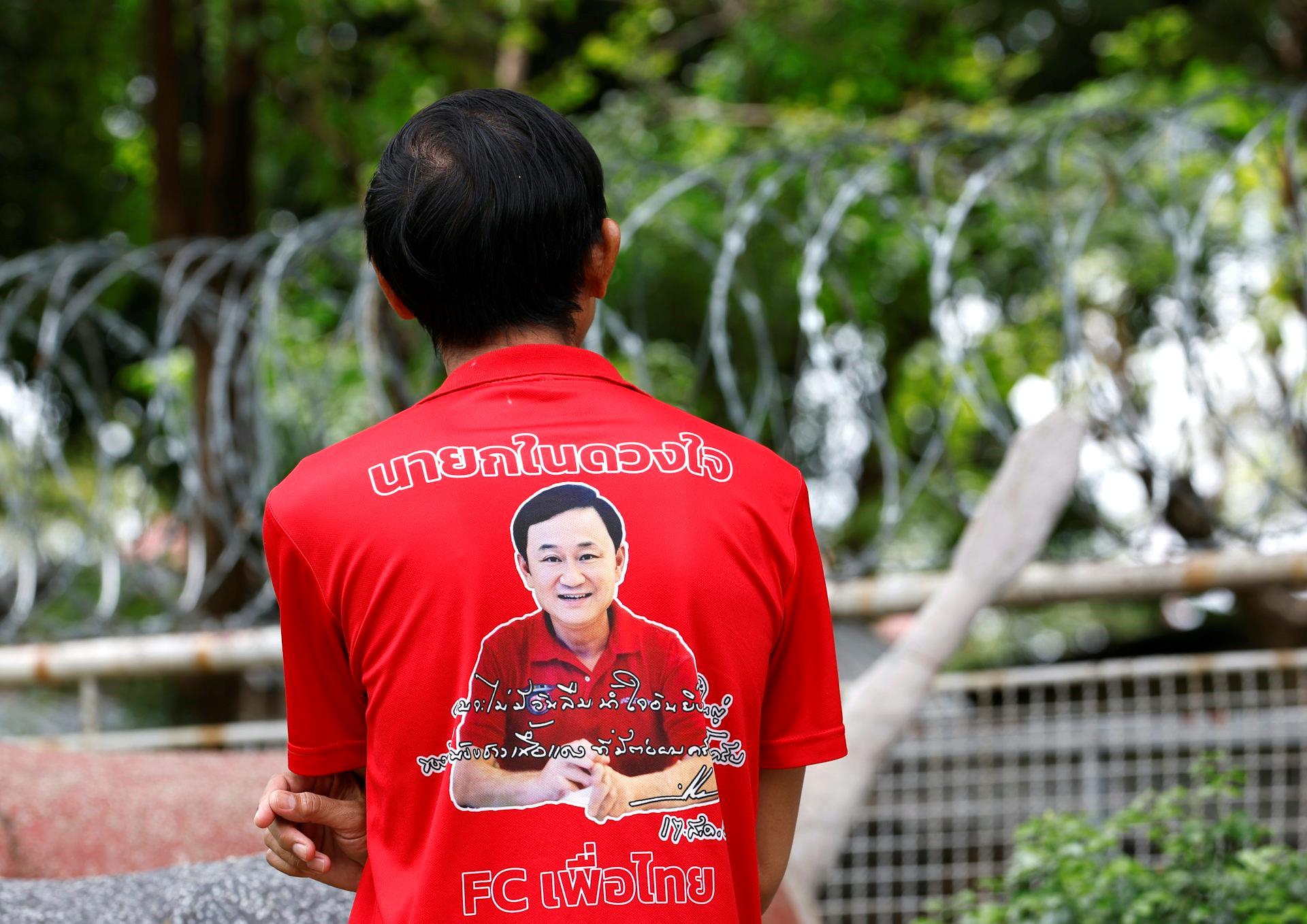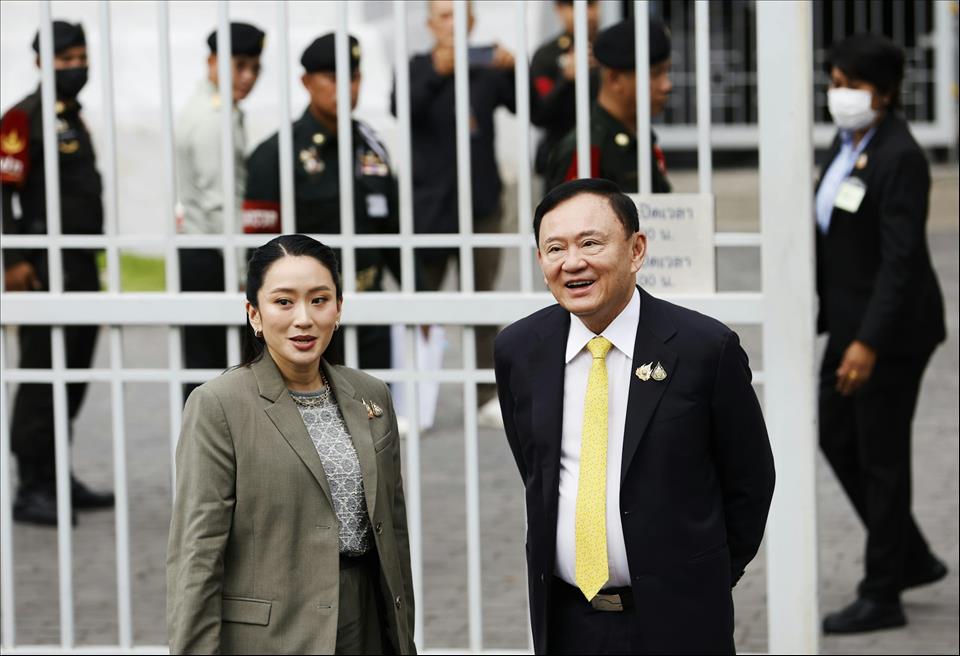Thailand's Politically Influential Shinawatra Family Is Fading From Centre Stage For Now
The Pheu Thai party, whose de facto leader is Paetongtarn's father and former Thai prime minister, Thaksin Shinawatra, lost its bid to lead the next government one week later. Then, on September 9, the supreme court sentenced Thaksin to one year in prison for past convictions of corruption and abuse of power.
All of this comes just two years after Pheu Thai struck a deal with the country's conservative royalist-military establishment that paved the way for Thaksin to return to Thailand after more than 15 years in exile. The reformist Move Forward party had won the 2023 general election that year, but was blocked from taking office and dissolved by the constitutional court.
The deal allowed Thaksin, who had been ousted from power by a military coup in 2006 and subsequently fled the country, to return on preferential terms. It also enabled Pheu Thai's prime ministerial nominee, Srettha Thavisin, to lead a coalition government.
For a family that has survived two military – and countless judicial – coups, the speed and scale of the recent blows are remarkable. Could this be the end of the Shinawatra family's influence over Thai politics?
Read more: Thailand has another new prime minister and an opening for progress. But will anything change?

A Thaksin supporter outside Bangkok Remand Prison in Bangkok, Thailand, September 9. Rungroj Yongrit / EPA
The Shinawatra family's position at the top of Thai politics has always been precarious. While parties aligned with Thaksin continued to win elections after the 2006 coup, their terms were always cut short by judicial interventions.
Thaksin's sister, Yingluck, was ousted from power by another military coup in 2014. And after winning the 2019 election, Pheu Thai's then-leader Sudarat Keyuraphan was prevented from taking power as the military sought to retain control after five years of rule.
The 2023 deal did not improve the Shinawatras' political fortunes for long. The constitutional court removed Srettha Thavisin from his post in August 2024 in an ethics case for appointing a cabinet minister who was once jailed.
Paetongtarn subsequently took office. But less than a year later, a flare-up in a historical border conflict with Cambodia escalated into a full-blown political crisis on the Thai side.
Read more: Thailand and Cambodia's escalating conflict has roots in century-old border dispute
A private phone call with former Cambodian prime minister Hun Sen, in which Paetongtarn criticised the Thai military general overseeing the border region, was leaked. At a time of heightened nationalism and the military's increased popularity , Paetongtarn was painted as unpatriotic and weak.
While Paetongtarn weathered the initial fallout, legal challenges began to mount and on July 1 she was suspended from premiership pending an ethical misconduct investigation. Paetongtarn's duties were handed over to the deputy prime minister, Phumtham Wechayachai, in a caretaker capacity.
Read more: A border conflict may cost the Thai prime minister her job
The timing of Paetongtarn's suspension could not have come at a worse time for the Shinawatras. A historical legal case against Thaksin over accusations that he insulted the monarchy was scheduled to resume after a year-long adjournment. And the supreme court's investigation into Thaksin's hospital stay that helped him avoid serving time in prison upon his return to Thailand in August 2023 was also ongoing.
Loss of powerPaetongtarn's removal from office was widely anticipated, but Pheu Thai's subsequent loss of government was not. The Pheu Thai prime ministerial candidate, Chaikasem Nitisiri, was by no means an ideal nominee due to his low public profile and fragile health. But many political observers still saw him as a plausible replacement for Paetongtarn in the weeks leading to her dismissal.
However, the momentum shifted away from Pheu Thai and the Shinawatras following the constitutional court's ruling in early September. The conservative Bhumjaithai party swiftly proposed an alternative governing coalition and struck an agreement with the progressive People's party – the direct successor of Move Forward – to form a government.
Pheu Thai's loss of power is more than a short-term setback. It indicates a shift in conservative support away from Thaksin and the Shinawatras.
Thaksin's 2023 deal rested on two premises: his continuous ability to win elections and revive Thailand's economy. Pheu Thai has failed to deliver on both. Given the party's declining popularity, the country's conservative establishment may no longer see it as a useful ally in its fight against the rising progressive challenge .
In the aftermath of the 2014 coup, younger generations of Thais became more politically engaged. Disillusioned with the“old” pattern of politics that pitted the Shinawatras against the establishment, they supported newly created reformist parties. This support has continued to grow, culminating in protests between 2020 and 2022 that challenged the previously sacrosanct monarchy .
The Bhumjaithai party leader, Anutin Charnvirakul, after being elected as Thai prime minister on September 5. Narong Sangnak / EPA
The supreme court's decision to send Thaksin to prison presents another clear blow to the Shinawatras. However, it does not represent a complete political annihilation. There are ways in which Thaksin's time in jail could be cut short, including by applying for a royal pardon .
Days before the supreme court ruling, Thaksin abruptly left Thailand. He was thought to be attending a medical check-up in Singapore but instead landed in Dubai, his long-term home in exile. This raised suspicions that he was fleeing Thailand ahead of an unfavourable verdict.
But, to the surprise of many, he returned in time for the ruling and displayed an uncharacteristic degree of deference. He accepted the ruling without defiance or vindictiveness and promised to devote the rest of his life to serving the monarchy, the nation and the Thai people.
Thaksin's return suggests that, despite all the challenges, he calculates that there is still some space for him and his family in Thai politics. As a seasoned political operator, he will do anything to stage a comeback.
Yet if Bhumjaithai, now leading a minority government, proves itself a more reliable partner for the conservative establishment, the Shinawatras could find themselves permanently sidelined.
With or without them, Thailand's prospects for true democracy remain limited. The Bhumjaithai-led government does not represent a change in political direction, but more of a conservative elite pivot.

Legal Disclaimer:
MENAFN provides the
information “as is” without warranty of any kind. We do not accept
any responsibility or liability for the accuracy, content, images,
videos, licenses, completeness, legality, or reliability of the information
contained in this article. If you have any complaints or copyright
issues related to this article, kindly contact the provider above.
Most popular stories
Market Research

- TOKEN2049 Singapore Breaks Records: 25,000 Attendees At The World's Largest Web3 Event
- Permissionless Data Hub Baselight Taps Walrus To Activate Data Value Onchain
- Newcastle United Announce Multi-Year Partnership With Bydfi
- Ethereum Meme Coin Little Pepe Crosses $25M, Announces 15 ETH Giveaway
- Canada Real Estate Market Size, Share, Trends & Growth Opportunities 2033
- Everstake Expands Institutional Solana Services With Shredstream, Swqos, And Validator-As-A-Service


















Comments
No comment